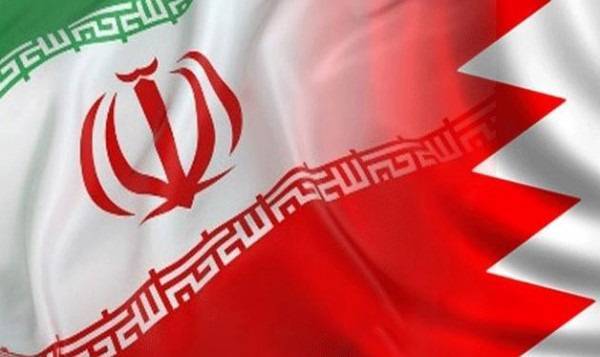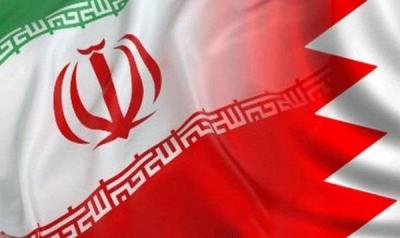Observers of the relations between the Islamic Republic of Iran and the Gulf Cooperation Council countries notice that there are steps being taken to resolve outstanding issues and restore diplomatic relations among all Gulf Cooperation Council countries and their eastern neighbor. This is especially relevant given the exceptional security conditions in the Middle East, which make it in the interest of various countries to ease tensions and work towards making serious direct dialogue a fundamental path to resolving conflicts that have become a heavy burden and obstacle to development and stability plans.
In this context, a meeting took place in the Iranian capital Tehran on June 23, involving Bahraini Foreign Minister Abdullatif Al Zayani and his Iranian counterpart Ali Bagheri Kani. This was the second meeting between the two ministers, following a previous one in May during Al Zayani's attendance at mourning ceremonies for the late former Iranian President Ibrahim Raisi and Foreign Minister Amir Hossein Abdullahian, along with their accompanying delegation. The Bahraini News Agency highlighted that the recent meeting took place within the "framework of the historical brotherly relations that bind the Kingdom of Bahrain and the Islamic Republic of Iran, and the ties of religion, neighborhood, joint history, and mutual interests."
This indicates that the two countries are seeking to emphasize the elements of convergence mentioned in the "statement." Despite its concise nature, the statement pointed to an important point: Manama and Tehran agreed to "create the necessary mechanisms to start discussions between the two countries to examine how to resume political relations between them." Establishing work mechanisms to pave the way for direct dialogue is significant, as it represents a "roadmap" for the conversation, ensuring that dialogue is not merely formal meetings that do not build a solid foundation for relations, especially since there are several files, particularly security-related ones, that need to be addressed.
The Kingdom of Bahrain has long complained, particularly after 2011, about "hostile" Iranian policies and ongoing interference in internal affairs, further complicated by the emergence of armed Bahraini opposition groups classified as "terrorist" organizations, such as Saraya al-Ashter, which Manama says receives financial and logistical support from the Iranian Revolutionary Guard.
"Saraya al-Ashter" has consistently adopted a rhetoric promoting "overthrowing the regime" through violence and the use of weapons. Bahraini individuals linked to "the brigades" who have been arrested are connected to arms and explosives smuggling operations. These "brigades" have members serving prison sentences in Bahrain, while others have fled the Kingdom, with some moving between Iraq and Iran. This issue concerning "security wanted persons" is among the significant files that will need practical resolution if Bahraini-Iranian relations are to be established soundly.
These "armed cells" linked to the "Revolutionary Guard," which present themselves as part of the "resistance axis," will not support any rapprochement between Manama and Tehran, as doing so would jeopardize part of the protection they receive and lead to a lack of financial, media, and security support as in the past. Continuing to back these "armed groups" from the Islamic Republic of Iran would send a negative message towards the Kingdom of Bahrain and hinder any positive progress in bilateral relations, which both countries seem to have decided to improve.
Moreover, these "armed cells" do not enjoy popularity on the Bahraini street, even among conservative religious factions, as many Bahrainis consider "Saraya al-Ashter" and its counterparts to have "harmed the security and stability in Bahrain." A source speaking with "Al Arabiya.net" added, "These armed groups lack political awareness, have engaged in sabotage, and have led the Bahraini arena toward escalation. They have also used platform pressure against national figures and leaders to become the loudest voice, making many fear them, despite their discontent. However, they have hijacked the scene for a period due to the force of arms." The source continued, "We must move beyond these groups and denounce their rhetoric, establishing a national discourse based on dialogue and understanding among different components that protects the social fabric."
Thus, if an agreement is reached to resolve the file of "security wanted persons" hiding in Iran, several other important files will also remain, although they may be less complex. These include the file of the "Islamic National Accord Society," which was dissolved in Bahrain in 2016 following a judicial ruling, with some of its leaders currently residing in Iran and other countries. Bahrain considers the "Accord" issue and the political groups that were dissolved to be "internal affairs, not an item for regional discussion between Manama and Tehran," asserting that any internal issues between the government and citizens are purely Bahraini matters to be discussed among Bahrainis without foreign intervention, as stated by a source to "Al Arabiya.net."
The Iranian government's spokesperson, Nasser Kanaani, previously indicated that "Iran attaches importance to its relations with Bahrain in their special framework," revealing that "messages are being exchanged and indirect talks are ongoing." The "continuation of discussions," as Kanaani mentioned, led to the recent meeting between the foreign ministers of Bahrain and Iran. It is likely that several future meetings will be held between officials from both countries, not all necessarily public, because the files to be discussed are "sensitive security matters" that require feasible agreements within a specific timetable to meet the interests of both countries and ensure security and stability in the region.




